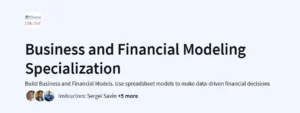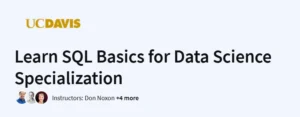What you will learn in Genomic Data Science Specialization Course
Gain a strong foundation in genomic data science, bioinformatics, and computational biology.
Learn to use bioinformatics tools and software like Python, R, and Bioconductor.
Understand DNA sequencing technologies, genome assembly, and data analysis.
Develop skills in genomic variant detection, annotation, and interpretation.
Learn machine learning applications in genomics and analyze large-scale datasets.
Apply real-world genomic case studies and research techniques.
Program Overview
Introduction to Genomic Data Science
⏱️4-6 weeks
Explore the basics of DNA sequencing and computational biology.
Learn about bioinformatics workflows and tools.
Python and R for Genomic Analysis
⏱️6-8 weeks
Develop skills in Python, R, and Bioconductor for genomic data analysis.
Perform sequence alignment, variant calling, and annotation.
DNA Sequencing Technologies & Genome Assembly
⏱️8-10 weeks
Understand next-generation sequencing (NGS) technologies.
Learn genome assembly methods and sequence alignment.
Statistical & Machine Learning Approaches in Genomics
⏱️10-12 weeks
Apply machine learning and data science techniques to genomic data.
Learn predictive modeling and genomic pattern recognition.
Capstone Project in Genomic Data Science
⏱️12-14 weeks
Work on a real-world genomic dataset.
Use bioinformatics pipelines and statistical models to analyze genetic data.
Get certificate
Job Outlook
High demand for bioinformaticians, geneticists, and data scientists in healthcare and research.
Genomic data science plays a crucial role in precision medicine, drug discovery, and disease prediction.
Career opportunities in biotechnology, pharmaceuticals, research institutes, and hospitals.
Salaries for genomic data scientists range from $80K to $150K+ annually.
A great stepping stone for careers in computational biology, AI-driven genomics, and genetics research.
Specification: Genomic Data Science Specialization
|
FAQs
- Yes, the specialization is designed for beginners with basic programming knowledge.
- It provides a comprehensive introduction to genomic data science, bioinformatics, and computational biology.
- Ideal for individuals interested in genomics, bioinformatics, or computational biology.
- Python and R for genomic data analysis.
- Bioconductor for bioinformatics workflows.
- Next-generation sequencing (NGS) technologies.
- Genome assembly, sequence alignment, and variant calling.
- Statistical analysis and machine learning applications in genomics.
The specialization consists of 5 courses and a Capstone Project.
Estimated time to complete: 3–6 months at 4–6 hours per week.
Courses include:
- Yes, upon completing the specialization, you will earn a Certificate of Completion from Johns Hopkins University.
- The certificate can be added to your resume or LinkedIn profile to showcase your skills in genomic data science.
- The course has received a 4.5 out of 5 stars rating, with over 6,700 reviews.
- Learners appreciate the structured lessons, hands-on projects, and real-world applications provided throughout the specialization.
- Many have found it to be an excellent preparation for careers in genomics, bioinformatics, and computational biology.





